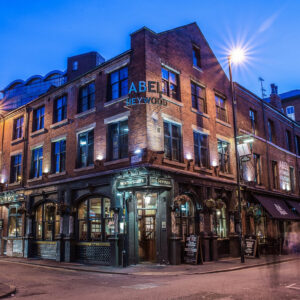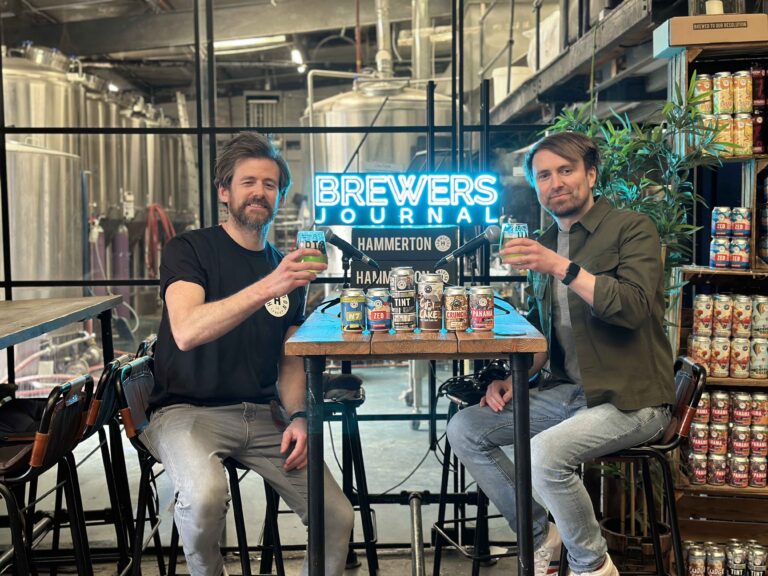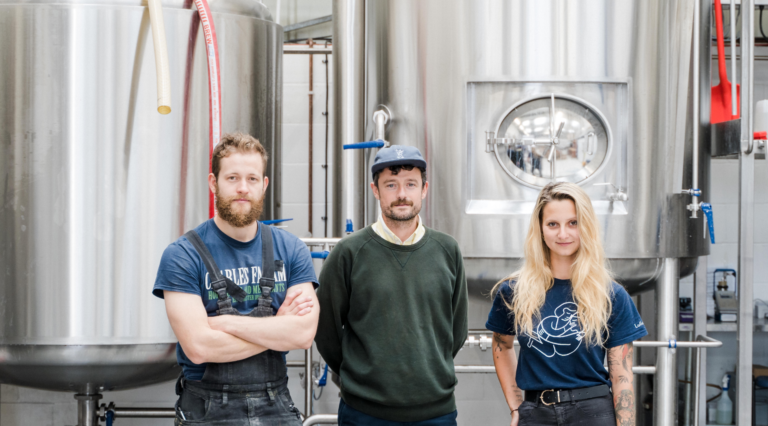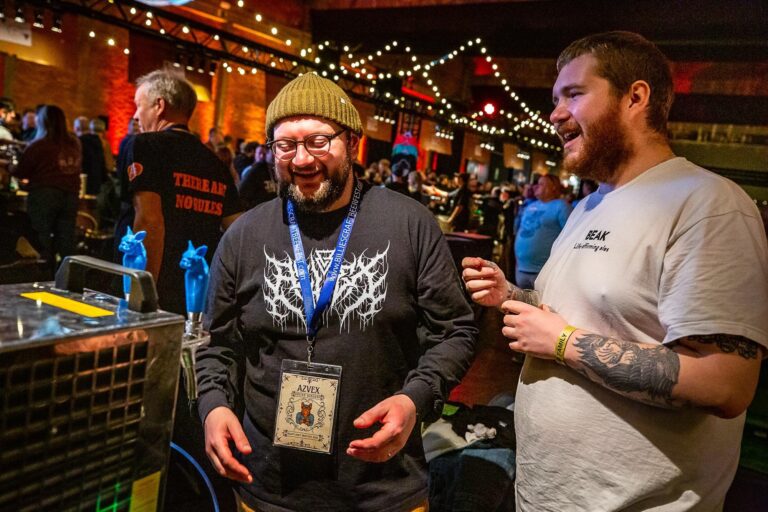In a year Manchester’s Marble Brewery celebrates being 22 years young, it’s time to toast a brewery that quietly gone about doing things its own way, making excellent beer and enriching the fabric of the UK’s diverse brewing scene.
“In this world nothing can be said to be certain, except death and taxes,” Benjamin Franklin so once famously said.
Fast-forward some 230 years, in an age dominated by social media, there are two certainties when fans of great beer and food visit Manchester.
And thats the deluge of snaps featuring mouth-watering vegetarian dishes from Bundobust on Piccadilly, and equally tantalising shots of perfectly served cask courtesy of The Marble Arch Inn on the Rochdale Road.
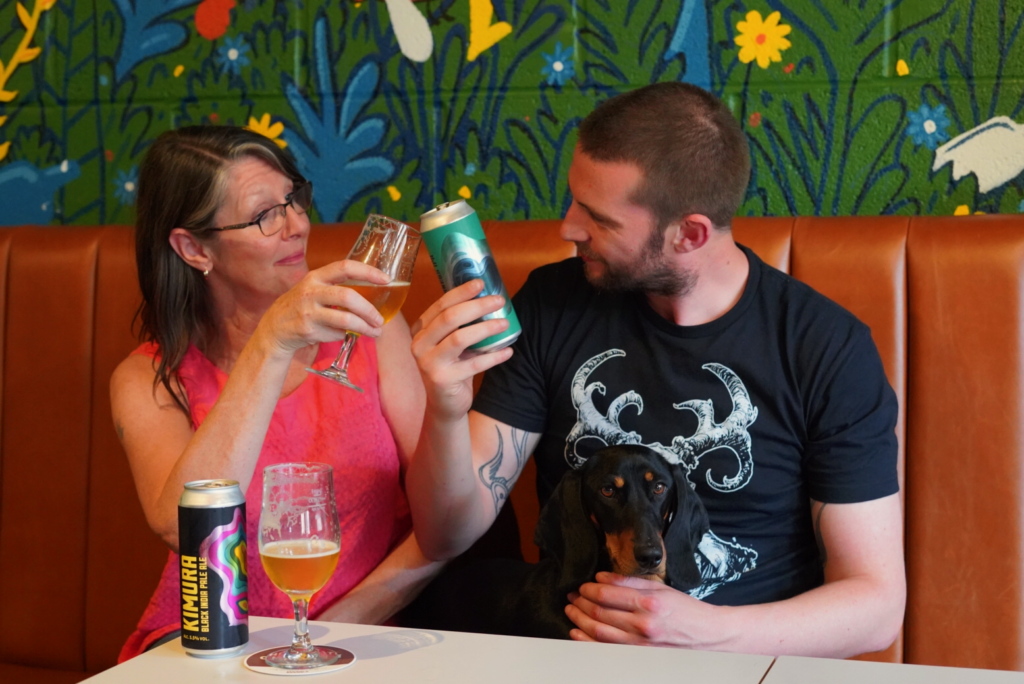
At a time where an increasing number of pubs rarely resemble traditional hostelries or worse, don’t exist at all, The Marble Arch Inn is still very clearly a pub. Wooden panelling, ornate decor, comfy seating of all kinds and beer, lots of fantastic beer. Not to mention great food, too.
And it’s here where the Marble Brewery journey started back in 1997. But a lot can happen in 22 years.
When the brewery started life as a four-and-a-half-barrel plant at the back of much-loved inn, the UK brewing landscape was markedly different than it is today.
Breweries have come, and have breweries have gone. But in that time, Marble Brewery, under the leadership of director Jan Rodgers, has become a mainstay in the ever-changing brewing scene.
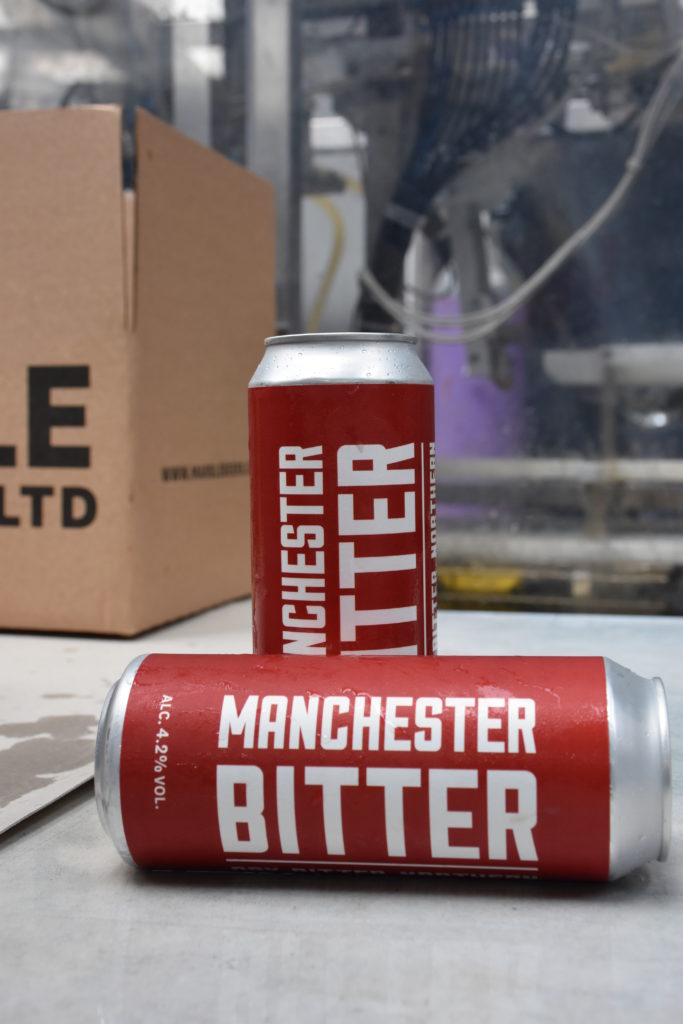
Beers such as Lagonda, Manchester Bitter and Pint have made indelible marks in the hearts and minds of drinkers, while newer creations from head brewer Joe Ince have taken the brewery in hop-forward and experimental directions.
That’s not to say he doesn’t respect the so-called classic styles, either. Joe is a firm advocate of cask beer and styles, regardless of dispense, that many modern drinkers are potentially missing. As a result, he ensures that Marble’s output appeals to drinkers of all kinds.
Now, seven months since they started brewing at their new home in Salford, the business boasts a new brewhouse, the ability to brew an increasing number of beers, and is in the process of putting the finishing touches to its first ever taproom.
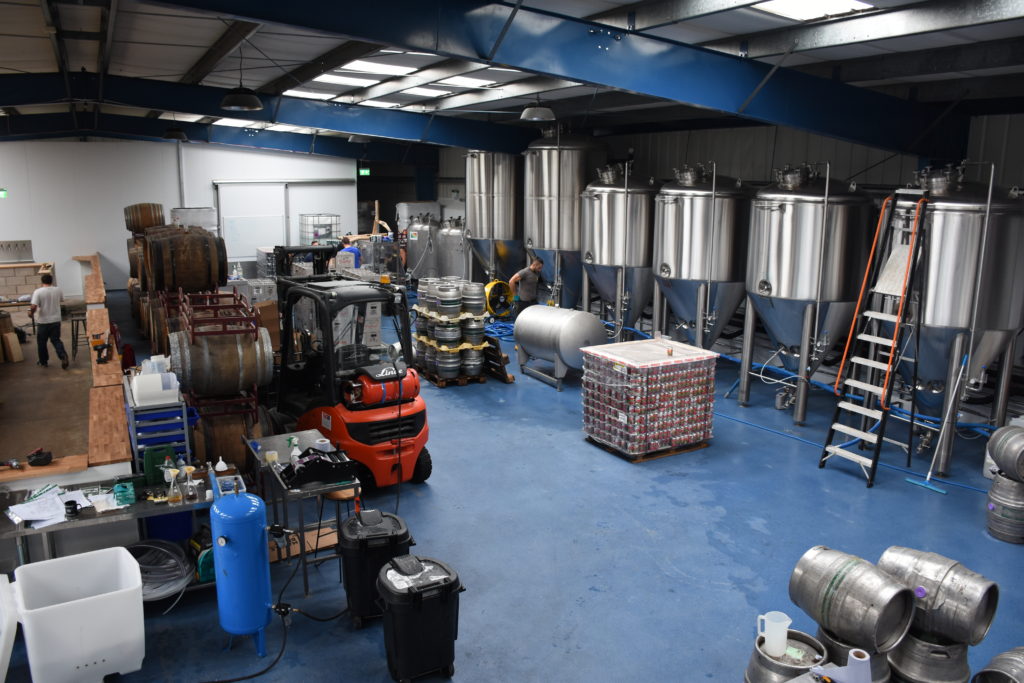
But despite a successful expansion under their belts, Rogers and Ince are also acutely aware of the challenges that lie ahead in what is an increasingly competitive market.
“It’s been a lot of hard work, but we’ve been brewing since March and had a lot of great help along the way,” explains Rogers. “I’m very proud of what we achieved in the old arch, and to how we left it, too. Anybody that has old kit and is moving to a new site, especially if you have a full repairing lease, you have to make sure you sort that before moving on!”
“And when you’re going through that process, make sure you add on extra 20% to what do you think it’s going to cost,” says Rogers.
Ince steps in: “Make sure to add an extra three months and 30% before your boss will only add 20.
“Everything just takes longer. So it’s important to work with people you like and people that you trust. Whether that’s a fabrication company, a lift and shift, or a drainage firm, if the person isn’t right then the price doesn’t matter. I cannot stress that enough.”
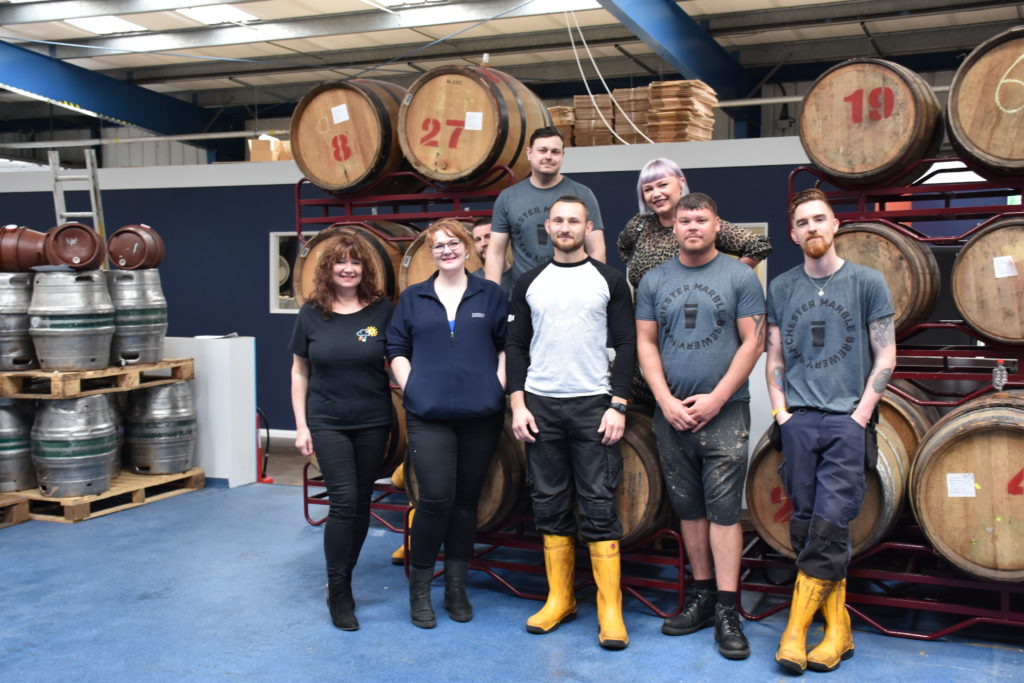
Both Ince and Rogers talk with glee about the brewery’s new home in Salford. Following years at the company’s old home, the new facility represents a start of a new era for the business.
“What’s important for me is that it enables a happy workforce,” says Rogers. “The old site was dreadful, if I’m honest. The team would have to step over syringes to get to work and there was fly-tipping everywhere, too.”
Ince adds: “Technically we can control what’s happening a lot more. We have a steam-fired kit so we are much better in terms of energy usage and managing wastage.
“There’s a real efficiency in terms of workflow, too. Previously, I could only assume the setup was done in a way to make my life so f**cking hard but that’s no longer the case, thankfully.
“Ingredients now will come in one side and processed beer goes out the opposite door. Kit is arranged in a horseshoe flow and it just saves us so much time in terms of production.
“We run a very small, hard-working team that is well looked after. It’s an ethos of mine that I don’t need a lot of people in production, instead calling on a small team but a talented highly skilled one.
“And the more time we can spend making beer, cellaring beer and packaging it, the better. This new facility allows for that. Oh, and I can bring my dog Daphne to work as well.”
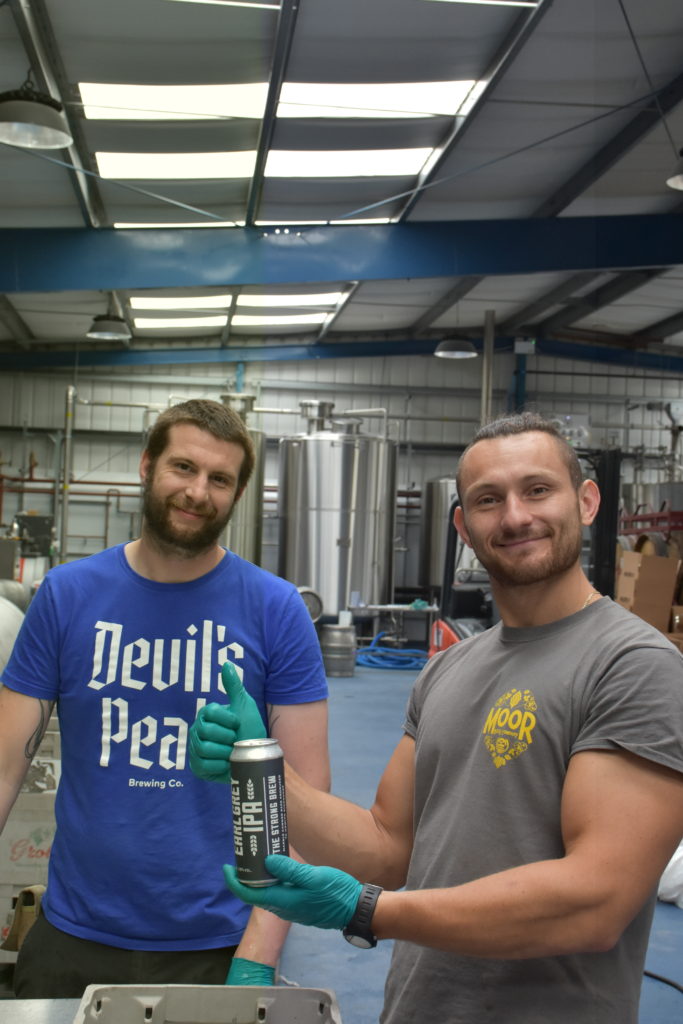
Ince is the latest head brewer to take charge at Marble. Rogers is rightfully proud of the way Marble’s brewing alumni have gone on to work and found other breweries across the UK, including James Kemp at Yeastie Boys, James Campbell, former head brewer at Cloudwater Brew Co and now of SSV Limited, Dominic Driscoll at Thornbridge, Colin Stronge of Salt Beer Factory, Matthew Howgate at Legitimate Industries and Dan W De Bechevel, founder and head Brewer at Wander Beyond Brewing, to name but a few.
Ince, who took over from Kemp last spring, relished the opportunity to specify Marble’s new brewery setup, adopting his meticulous attention to detail at every turn.
Gravity Systems were commissioned to provide the new brewhouse alongside some ancillary equipment, while Jenn Merrick, founder of Earth Station, also worked with Marble on the initial brews on the new kit.
“There was a lot of back and forth, and we could have got some kit off the shelf, but we probably would have ended up getting rid of it in a few years,” says Ince. “I had a very set idea of how I wanted things to work and partnering with Gravity Systems allowed us to achieve that.”
He adds: “Initially they suggested rakes but as we’re only a 25hl brewhouse, you don’t work for me if you can’t dig out a mash tun of that size. We’d go through what both parties suggested and made everything work.
“For me, the whole process was approached with the beer leaving the door and the grain coming into the building. If you’re planning a move, or setting up a brewery or undergoing an expansion, always work backwards.”
Marble output 4,300HL last year and although it holds no great desires to pass the 5,000HL mark, the team know that could well become an eventuality.
“One other great benefit of this new kit is that it’s all designed to be plug-and-play. At present, if I never went home at night, we could probably output somewhere between 6,500HL to 7,000HL,” says Ince. “Everything that’s already in there in terms of heat exchangers CLT and HLT are all ready to take on extra pressure that comes with new tank capacity, but there are no plans to go over 5000 at the moment. It’s been set up to do so if needs be.”
He goes on: Having gone through brewery expansions elsewhere at a boots on the ground level, I am very aware of pressure that has on your team. You could easily be in the position where they’re doing 16/17 hour days for three months, so we’re thankfully avoiding any potential situation with this new setup.”
“If you have 2000 breweries in the UK, very few of those are big producers and they need protecting,” Jan Rogers, Marble Brewery
In this new era for the brewery, Rogers and Ince feel that the one challenge that very much remains is the threat to Small Brewers Duty Relief (SDBR) from those outfits operating at a bigger level, in terms of volume, than Marble.
“There are breweries feeling squeezed, so instead of trying to do battle with the even larger, often multinational breweries, they are trying to take away from the smaller brewers in a big to regain their market share,” believes Ince.
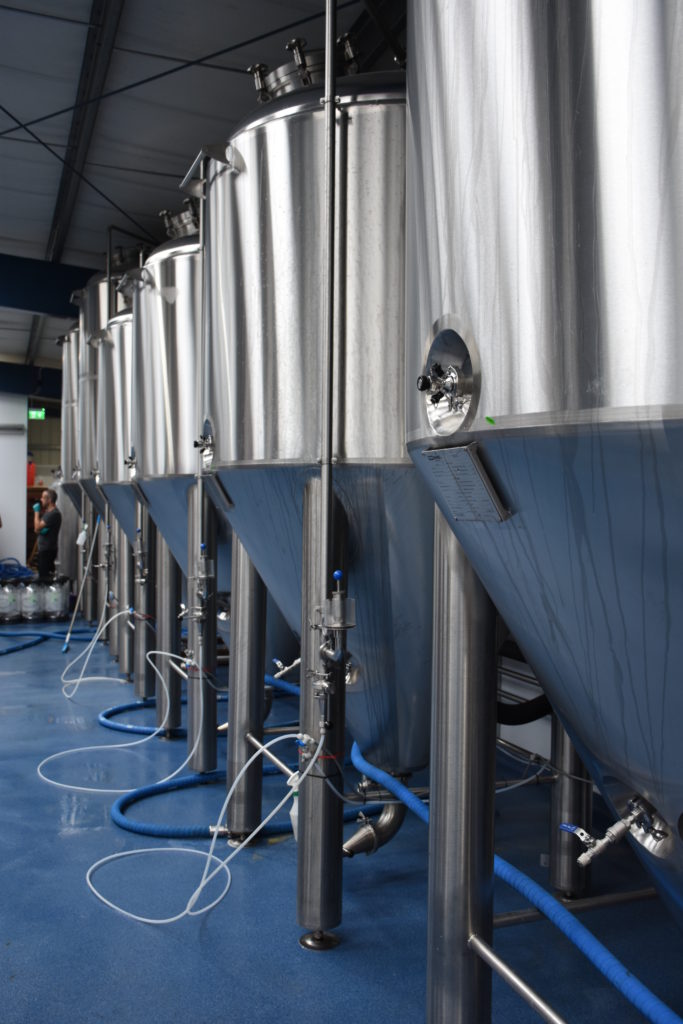
He adds: “The pressure groups that are working to remove SBDR find it easier to remove the super high number of smaller breweries than is to take on the bigger multinational companies.
“It’s way easier to f*ck over smaller breweries than it is to f*uck with the multinationals. At the end of the day, AB InBev make your regional family brewery look like a guy in a shed. If I was going to court when I go to court with someone like Heineken or me, I know who I’m going to mess with!”
Rogers adds: “I’m asking the breweries producing around 7000HL to 10000HL, ones that are in a sphere of influence in the industry. We need them to publicly repeal against this pressure. If you have 2000 breweries in the UK, very few of those are big producers and they need protecting.”
“If you don’t follow the market you have to be strong enough to stand on your own,” Joe Ince, Marble Brewery
The Marble Brewery of 2019 is a reality made possible by financing in-house, an approach Rogers is happy with.
“We don’t have a lot of money so took the decision to sell the Marble Beer House in Chorlton and also sold our old kit, which together raised £200,000 in working capital,” she recalls. “Conversations with a finance company for new kit followed but the terms required of us, and the sums to repay over five years, were ones we weren’t comfortable in matching.”
Rogers adds: “So we went back to the bank and discussed remortgaging against The Marble Arch Inn. It’s a property, to a bank, that’s worth a lot of money in theory, so we went ahead with that option.
“When it’s all said and done, we will have spent around £750,000 and learned our lessons in the process. There are a lot of conversations taking place regarding crowdfunding and private equity but all I can say is that we’ve done our own little bit and done things our way.”
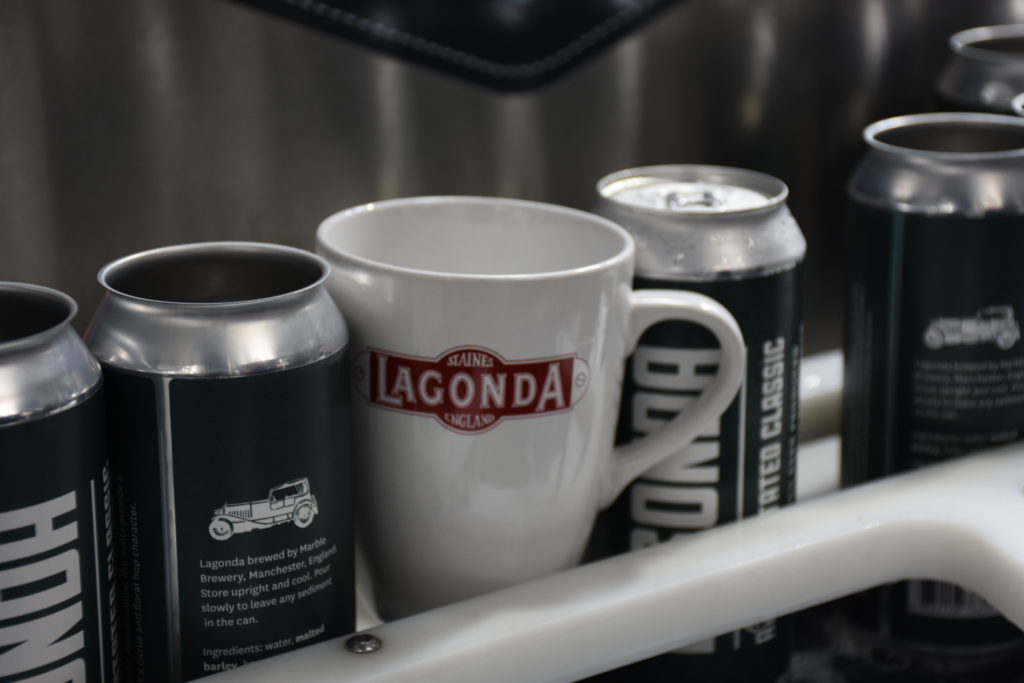
And doing things their way is an ethos that applies to the beers Ince and his team produce, too.
“The brewer should always lead the formulation of new beers. But I would say that, it just means I’ll get a hiding from Jan, too,” he laughs.
Ince explains: “In previous roles, we’d have meetings at production level and when there was a free slot in production we’d discuss what we should brew.
“I’d, of course, always suggest a 7% Simcoe-heavy West Coast IPA but I’d never want to be put in a situation where I’m told by someone what to brew and how these three fruits or whatever will work together. Never throw that at me. Hopefully I know enough about brewing to not be told how to do things.”
One thing Ince is also certain on is that he’s open to all beer styles but questions following trends.
“If you don’t follow the market you have to be strong enough to stand on your own,” he stresses.
“If you are chasing the market because you think that will increase your sales then everything relies on you and the quality of your product,” he says. “If you just ignore it, and do what you want to do all of the time, someone still has got to come and buy your stuff otherwise you’ll go broke. So you have to have strength in your convictions.”
Being confident in your product, and putting out something you’re proud of, is one thing. But informing the consumer of what you’re offering them is another. As more drinkers enter the space, the challenge of educating the drinker broadens.
“Watery, this beer is watery,” laments Rogers. “No, that beer is session-strength and it’s meant to be that way. If a drinker has made their foray to beer through heavy, sticky, strong stouts, then of course a cask low ABV beer will be different. It’s a matter of making that clear to the drinker.”
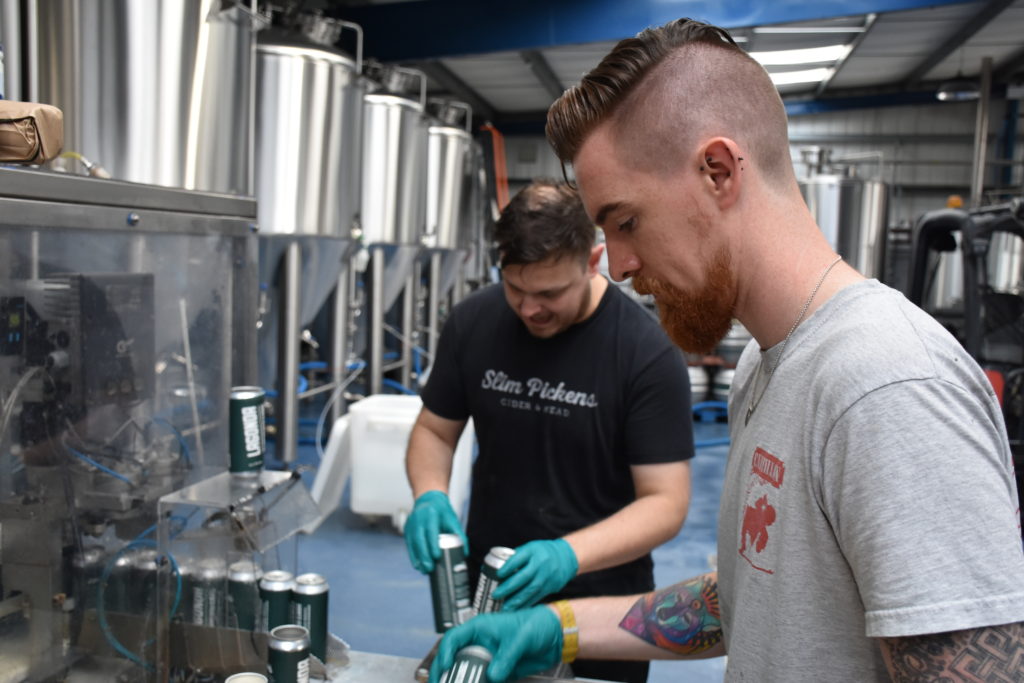
She adds: “You can enjoy Haribo, and you can enjoy Green and Black’s. There’s a spectrum and these can all exist alongside each other. But one thing I’m very sure on is that, in the age of New England-style beers, we need to have a conversation on bitterness, and inform the drinker, too.”
“It’s ok to like what you like,” explains Ince. “But I think the word traditional is being bandied around in the wrong way. I am as proud of cask beer being made here in the UK as anyone is of the Lambic producers in Belgium.”
“Cask beer should be respected because nobody else is going to give a s*** unless we do,” Joe Ince, Marble Brewery
He says: “There is an art in producing great cask beer this that is so in tune with making any other type of beer that is well respected in the world. It’s no different to brewing a good Pilsner, a Lambic, or a Doppelbock, and it should be respected in that way because nobody else is going to give a s*** unless we do.
“Now, I didn’t really start drinking beer with the respect I should have until I left Manchester and went to work at Magic Rock. There, I witnessed how invested the team were in the the beer they produced.
“We were knocking out world-class beers, but if you messed up Ringmaster (the brewery’s flagship pale ale) and Uncle Dave knocked back 10 pints of it that Sunday, you would most definitely have a s*** Monday back at the brewery. You’d make damn sure the next batch was bang on.”
“The old boy drinking cask in a pub should be given the same amount of respect as people buying a brand new pastry stout, For me, there should be no more talk about traditional beer, just great British beer.”



